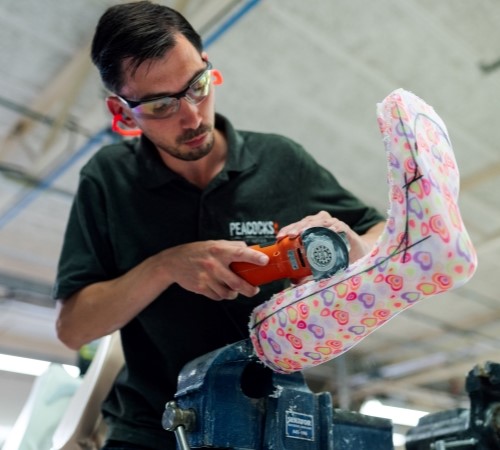I was delighted to see that the Royal Academy of Engineering’s excellent Critical Conversations series chose to focus on a topic that has demanded much recent attention from my colleagues and I on the Engineers 2030 working group.
How do we create engineers with the skills that the world needs? It is difficult to think of a question that is more critical than this. Skills are foundational to the way in which engineers can respond to pretty much any global challenge.
The discussion was chaired by the Royal Academy of Engineering CEO Dr Hayaatun Sillem, and steered by questions from the public. Panel members Dr Tim Slingsby, Dr Dorothy Okello and Rosa Wells covered a wide range of topics.
Many of the skills needs covered were familiar to me from Engineers 2030 debates, including, prominently, the importance of skills that can support flexibility and adaptability to contexts that change geographically as well was temporally. We also heard about the need for mobility in response to local and national needs; behaviours that prioritise health and safety and other forms of ethics; the ability to think in terms of systems; and being work-ready by developing suitable soft-skills. I find it encouraging that all these requirements can be linked to one or more of the six principles for change that we have published as part of our work.
The need to improve diversity within engineering, and for us to communicate well on what engineering is so that people can be excited about being involved, are also well-known requirements that have been recognised in our project vision. We are currently consulting widely on our project vision and principles. If you were stimulated as much as I was by the critical conversation session on skills, or are otherwise passionate about this urgent topic, please do have your say by responding to our consultation.

Male orthotic technician engineer makes personalised leg cast. Credit: Technicians make it happen.
Where the discussion became really interesting to me was when it came to possible responses to these identified needs. As I take up my role as chair of Engineers 2030, the project moves forward to consider how education and skills systems across the UK need to change to deliver our vision and principles. The critical conversation panel provoked many questions that we will need to think about in depth.
- What role can micro credentials, skills badges or skills passports play in achieving flexible, adaptable engineers?
- Do we need a better provisioned ‘skills observatory’ that has a responsibility for bringing academia, industry and government together to better define skills needs in a way that can facilitate better coordination?
- How do we ensure that dramatic changes in curriculum or pedagogy are supported by the right levels of continued professional development for teachers?
- And should this include the application of new teaching technologies such as virtual reality?
These are fascinating questions that we will explore as we prioritise thematic topics for our future work.
An overarching theme arising from the discussion was just how complex the skills challenge currently is – especially on a global scale. This is complicated further when we consider that we don’t fully know how skills needs are going to change in the future. The Institute for the Future in collaboration with Dell, for example, found that an estimated 85% of the jobs in 2030 had not yet been invented at the time their ‘future of work report’ was published in 2018.
We need to come together though strong and diverse working partnerships, and we need to be better organised.
The Engineers 2030 literature review found that this complexity is mirrored in the mountain of literature published by the public sector on skills needs. Much of this work is high quality and will play an important role in how we must respond – but future alignment is essential if we are to provide a clear, intelligible account that can be acted upon. Our project is currently undertaking a significant stakeholder engagement exercise to better understand what else is happening in this space that we need to align with – so please do reach out to the Academy if you are working on skills.
There is so much vital work being undertaken; the Engineering Council’s registration review, the Royal Society of Arts’ capability for life framework, and our own global engineering capability review are all prominent examples. But to achieve the more radical change the critical conversation panellists were calling for, it will be essential that it is not carried out in small or incremental pockets of activity. We need to come together though strong and diverse working partnerships, and we need to be better organised.
A key role of Engineers 2030 is to understand how this coordination can work in practice, with actions defined and mutually supported within a plan for real, demonstrable change. If we can organise and communicate our core messages in unison, then we can amplify our voice and ensure we are heard.
